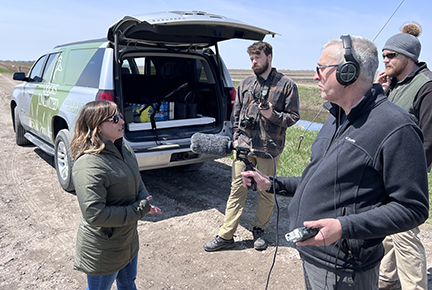News and stories about our efforts to help local communities and create opportunities for people around the world

Ducks Unlimited’s conservation staff can speak with authority on topics related to wetlands impact and benefits, water quality, waterfowl science and large-scale conservation efforts.
Joe Genzel
Great Lakes, Northern Atlantic Region
Molly Jarone
Western United States Region
KayLeigh Mitchell
Memphis, TN
Ducks Unlimited uses cookies to enhance your browsing experience, optimize site functionality, analyze traffic, and deliver personalized advertising through third parties. By continuing to use this site, you agree to our use of cookies. View Privacy Policy